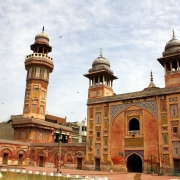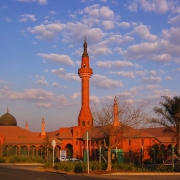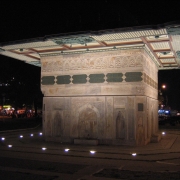Creating Harmony Through Tradition in Japan – Matthew Teller
Abstract:
The tea ceremony is a marker of Japanese traditional culture, refined over centuries so that every aspect has significance, from the room setting and the arrangement of flowers to the calibrated movements of the tea master in preparing and serving the brew. Yet despite his skill, Yamamoto is not a tea master. A professor of Islamic studies at Marmara University in Istanbul, Turkey, he is an influential figure shaping Japanese Muslim society. His tea ceremony is taking place not in a traditional tea house but before a seated audience ranging from students to elders in Tokyo’s main congregational mosque. At the age of only 33, Yamamoto has developed what he calls an “Islamic tea ceremony” as an experiment, an innovative public workshop in which new links of understanding can be forged between Japan’s roughly 0.1-percent Muslim population and the rest of the country’s people, almost all of whom follow Buddhism and Japan’s homegrown religion, Shinto.“The point is to help people acquire the power of interpretation, the intellectual muscles of critical thinking and critical understanding of this world,” Yamamoto says. “We, as Muslims, can contribute to the prosperity and diversity of Japanese society.”









